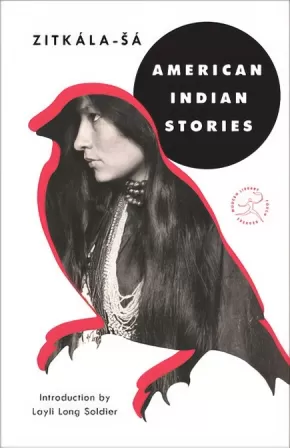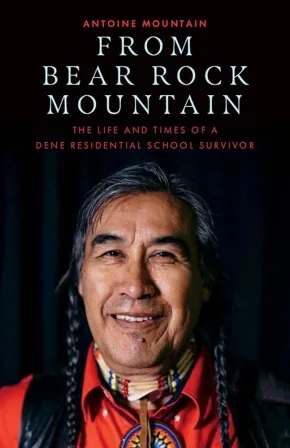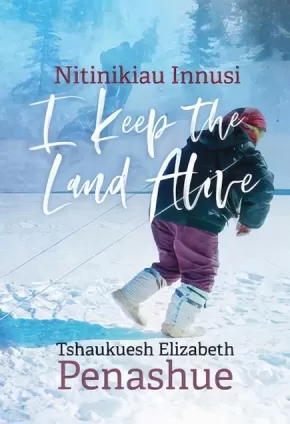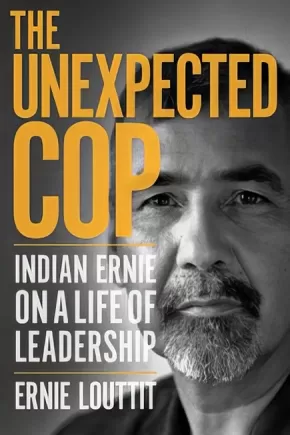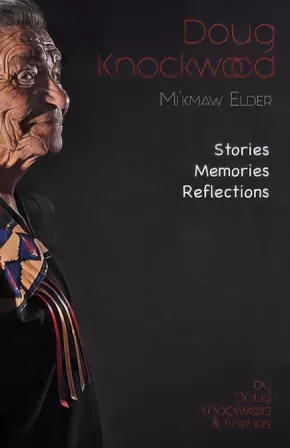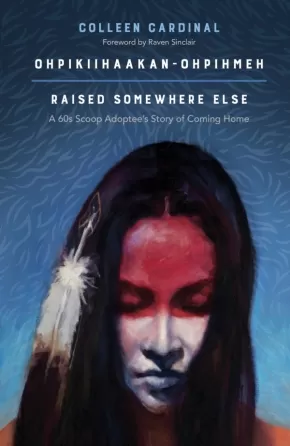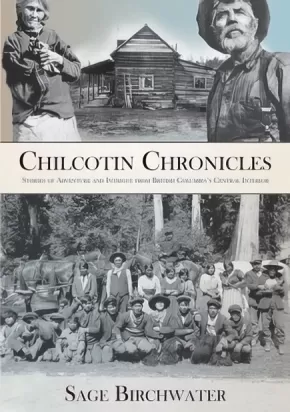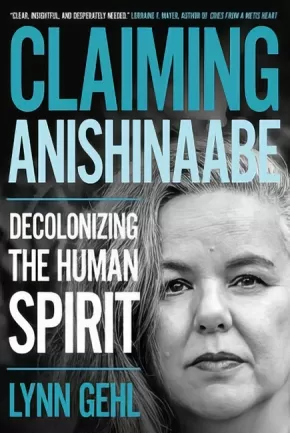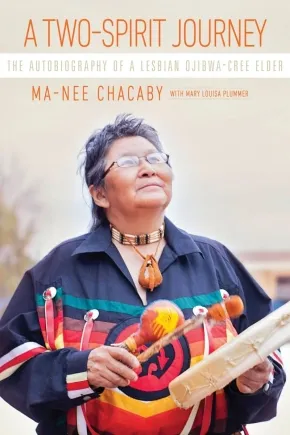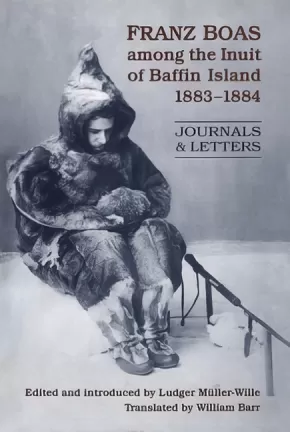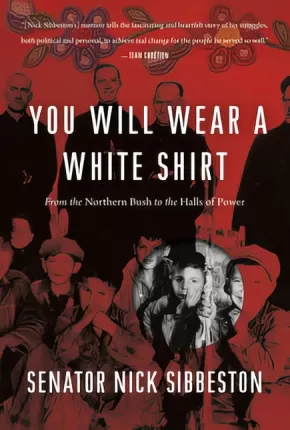Autobiographies
Synopsis:
A groundbreaking Dakota author and activist chronicles her refusal to assimilate into nineteenth-century white society and her mission to preserve her culture—with an introduction by Layli Long Soldier, winner of the National Book Critics Circle Award and the PEN/Jean Stein Book Award for Whereas.
Bright and carefree, Zitkála-Šá grows up on the Yankton Sioux reservation in South Dakota with her mother until Quaker missionaries arrive, offering the reservation’s children a free education. The catch: They must leave their parents behind and travel to Indiana. Curious about the world beyond the reservation, Zitkála-Šá begs her mother to let her go—and her mother, aware of the advantages that an education offers, reluctantly agrees.
But the missionary school is not the adventure that Zitkála-Šá expected: The school is a strict one, her long hair is cut short, and only English is spoken. She encounters racism and ridicule. Slowly, Zitkála-Šá adapts to her environment—excelling at her studies, winning prizes for essay-writing and oration. But the price of success is estrangement from her cultural roots—and is it one she is willing to pay?
Combining Zitkála-Šá’s childhood memories, her short stories, and her poetry, American Indian Stories is the origin story of an activist in the making, a remarkable woman whose extraordinary career deserves wider recognition.
Additional Information
160 pages | 5.18" x 8.00"
Synopsis:
In this poetic, poignant memoir, Dene artist and social activist Antoine Mountain paints an unforgettable picture of his journey from residential school to art school—and his path to healing.
In 1949, Antoine Mountain was born on the land near Radelie Koe, Fort Good Hope, Northwest Territories. At the tender age of seven, he was stolen away from his home and sent to a residential school—run by the Roman Catholic Church in collusion with the Government of Canada—three hundred kilometres away. Over the next twelve years, the three residential schools Mountain was forced to attend systematically worked to erase his language and culture, the very roots of his identity.
While reconnecting to that which had been taken from him, he had a disturbing and painful revelation of the bitter depths of colonialism and its legacy of cultural genocide. Canada has its own holocaust, Mountain argues.
As a celebrated artist and social activist today, Mountain shares this moving, personal story of healing and the reclamation of his Dene identity.
Educator Information
Recommended in the Canadian Indigenous Books for Schools 2019-2020 resource list as being useful for grades 9 to 12 in the following subject areas: English Language Arts, Social Studies.
Included in this story are personal stories of residential school and addiction.
Additional Information
272 pages | 5.50" x 8.50"
Synopsis:
A new, fully restored edition of the essential Canadian classic.
An unflinchingly honest memoir of her experience as a Métis woman in Canada, Maria Campbell's Halfbreed depicts the realities that she endured and, above all, overcame. Maria was born in Northern Saskatchewan, her father the grandson of a Scottish businessman and Métis woman--a niece of Gabriel Dumont whose family fought alongside Riel and Dumont in the 1885 Rebellion; her mother the daughter of a Cree woman and French-American man. This extraordinary account, originally published in 1973, bravely explores the poverty, oppression, alcoholism, addiction, and tragedy Maria endured throughout her childhood and into her early adult life, underscored by living in the margins of a country pervaded by hatred, discrimination, and mistrust. Laced with spare moments of love and joy, this is a memoir of family ties and finding an identity in a heritage that is neither wholly Indigenous or Anglo; of strength and resilience; of indominatable spirit.
This edition of Halfbreed includes a new introduction written by Indigenous (Métis) scholar Dr. Kim Anderson detailing the extraordinary work that Maria has been doing since its original publication 46 years ago, and an afterword by the author looking at what has changed, and also what has not, for Indigenous people in Canada today. Restored are the recently discovered missing pages from the original text of this groundbreaking and significant work.
Additional Information
224 pages | 5.21" x 7.99"
Synopsis:
Gabriel Dumont Institute Press is honoured to publish Cecile Blanke’s Lac Pelletier: My Métis Home. A prominent Métis Elder living in Swift Current, Saskatchewan, but with deep roots in nearby Lac Pelletier, Cecile has been a tireless presence on the Métis and larger cultural scene in southwest Saskatchewan for many years. The history of the southwest Saskatchewan Métis is not widely known, and this book contributes significantly to our knowledge of this community. With her vivid memories of Lac Pelletier’s local families and traditions, we are left with an enduring portrait of a caring Métis community which maintained close family ties and lived in harmony with Lac Pelletier’s flora and fauna. Cecile also chronicles the racism that the local Métis often faced and discussed how colonization made her and others question their Métis identity. With time and perspective, she overcame this self-hatred and became proud of her Métis heritage, becoming its biggest promoter in her region of Saskatchewan.
Educator Information
Recommended by Gabriel Dumont Institute for these grade levels: Secondary/Post-Secondary/Adult
Synopsis:
Labrador Innu cultural and environmental activist Tshaukuesh Elizabeth Penashue is well-known both within and far beyond the Innu Nation. The recipient of a National Aboriginal Achievement Award and an honorary doctorate from Memorial University, she has been a subject of documentary films, books, and numerous articles. She led the Innu campaign against NATO’s low-level flying and bomb testing on Innu land during the 1980s and ’90s, and was a key respondent in a landmark legal case in which the judge held that the Innu had the “colour of right” to occupy the Canadian Forces base in Goose Bay, Labrador. Over the past twenty years she has led walks and canoe trips in nutshimit, “on the land,” to teach people about Innu culture and knowledge.
Nitinikiau Innusi: I Keep the Land Alive began as a diary written in Innu-aimun, in which Tshaukuesh recorded day-to-day experiences, court appearances, and interviews with reporters. Tshaukuesh has always had a strong sense of the importance of documenting what was happening to the Innu and their land. She also found keeping a diary therapeutic, and her writing evolved from brief notes into a detailed account of her own life and reflections on Innu land, culture, politics, and history.
Beautifully illustrated, this work contains numerous images by professional photographers and journalists as well as archival photographs and others from Tshaukuesh’s own collection.
Additional Information
288 pages | 6.00" x 8.50" | 128 colour illustrations | 1 map | bibliography
Synopsis:
The cop who blew the whistle on Saskatoon’s notorious “Starlight Tours,” Ernie Louttit is the bestselling author of two previous “Indian Ernie” books. He demonstrates in this latest title that being a leader means sticking to your convictions and sometimes standing up to the powers that be. One of the first Indigenous officers hired by the Saskatoon Police, he was an outsider who became an insider, with a difference. A former military man with a passion for the law, he was tough on the beat, but was also a role model for kids on the streets.
Reviews
"I read it in one sitting and it left me wanting more" - John Lagimodiere, editor and publisher of Eagle Feather News
“The author fearlessly takes on some of the most problematic public issues of the day…and confronts them with the objective practicality of a thoughtful, observant foreigner.” —Les Macpherson, former editor and columnist with the Saskatoon StarPhoenix
Additional Information
192 pages | 6.00" x 9.00"
Synopsis:
Freeman Douglas Knockwood is a highly respected Elder in Mi’kmaw Territory and one of Canada’s premier addictions recovery counsellors. The story of his life is one of unimaginable colonial trauma, recovery and hope.
At age 6, Knockwood was placed in the Shubenacadie Residential School, where he remained for a year and a half. Like hundreds of other Mi’kmaw and Maliseet children, he suffered horrible abuse. By the time he reached his twenties, he was an alcoholic. He contracted tuberculosis in the 1940s, had one lung and several ribs removed.
Having hit rock bottom, Knockwood, gained sobriety in his thirties through Alcoholics Anonymous. He went on to become a much sought after drug and alcohol rehabilitation counsellor in Canada. Many of Doug’s initiatives have been implemented across Canada and used by thousands of people, both Indigenous and non-Indigenous. Looking back now, says Doug, “I realize I wasn’t only helping them. They were helping me to gather strength in my presentations, in feeding them the knowledge I received, the same as it was fed to me. That helped me to gain confidence in myself; doing all these things that I didn’t know I could yet do”.
This book is an in-depth look at Doug Knockwood’s life that also casts a wide and critical glance at the forces that worked to undermine his existence and the indomitable spirit of a man who recovered from, yet still struggles to overcome, those forces.
Educator Information
The 2018-2019 Canadian Indigenous Books for Schools list recommends this resource for Grades 10-12 for these subjects: English Language Arts, Social Justice, Social Studies.
Additional Information
128 pages | 6.00" x 9.00" | Written by Doug Knockwood and Friends
Synopsis:
During the 60s Scoop, over 20,000 Indigenous children in Canada were removed from their biological families, lands and culture and trafficked across provinces, borders and overseas to be raised in non-Indigenous households.
Ohpikiihaakan-ohpihmeh — Raised Somewhere Else delves into the personal and provocative narrative of Colleen Cardinal’s journey growing up in a non- Indigenous household as a 60s Scoop adoptee. Cardinal speaks frankly and intimately about instances of violence and abuse throughout her life, but this book is not a story of tragedy. It is a story of empowerment, reclamation and, ultimately, personal reconciliation. It is a form of Indigenous resistance through truth-telling, a story that informs the narrative on missing and murdered Indigenous women, colonial violence, racism and the Indigenous child welfare system.
Reviews
“With Canadians slowly awakening to the reality of the 60s Scoop and its ongoing repercussions, Cardinal’s inspiring work here is essential reading and will be an integral resource for generations to come.” — Waubgeshig Rice, author of Legacy
“Offers a window through which readers can see why cultural suppression is such a dark chapter in Canada’s history.” — Winnipeg Free Press
“I highly recommend reading this story for anyone interested in learning more about the Sixties Scoop and understanding what’s really happening under the stereotypes put on many Indigenous by those who do not truly understand.” — All Booked
Educator Information
The Canadian Indigenous Books for Schools list recommends this resource for Grades 10-12 for English Language Arts.
Additional Information
214 pages | 6.00" x 9.00" | Foreward by Raven Sinclair
Synopsis:
A compilation of stories that meld both culture and bloodlines, Chilcotin Chronicles by Sage Birchwater is set in the wild and untamed country of central British Columbia’s Chilcotin Plateau. West of the Fraser River, this high country is contained by an arc of impenetrable mountain ranges that separates it from the Pacific Coast. The first inhabitants of this region were fiercely independent, molded by the land itself. Those who came later were drawn to this landscape with its mysterious aura of freedom, where time stood still and where a person could find solace in the wilderness and never be found.
Birchwater reaches back to first European contact in British Columbia when the indigenous population spoke forty of Canada’s fifty-four languages and seventy of Canada’s one hundred dialects. The land known today as the Cariboo Chilcotin Coast was already an entity when Alexander Mackenzie arrived in 1793. Bonds of friendship, mutual support and family ties had long been established between the Dakelh, Tsilhqot’in and Nuxalk, giving cohesiveness to the region. Chilcotin Chronicles is about the men and women caught in the interface of cultures and the changing landscape. Indigenous inhabitants and white newcomers brought together by the fur brigades, then later by the gold rush, forged a path together, uncharted and unpredictable. Birchwater discovers that their stories, seemingly disconnected, are intrinsically linked together to create a human ecosystem with very deep roots. The lives of these early inhabitants give substance to the landscape. They give meaning to the people who live there today.
Synopsis:
Denied her Indigenous status, Lynn Gehl has been fighting her entire life to reclaim mino-pimadiziwin--the good life. Exploring Anishinaabeg philosophy and Anishinaabeg conceptions of truth, Gehl shows how she came to locate her spirit and decolonize her identity, thereby becoming, in her words, "fully human." Gehl also provides a harsh critique of Canada and takes on important anti-colonial battles, including sex discrimination in the Indian Act and the destruction of sacred places.
Reviews
Gehl is at the cutting edge with her concepts and ideas... She is on a journey and documents it well. — Lorelei Anne Lambert, author of Research for Indigenous Survival
Clear, insightful, and desperately needed... — Lorraine F. Mayer, author of Cries from a Métis Heart
The discussion of the heart and mind knowledge, as well as the discussion on the Anishinaabeg Clan System of Governance, [are] major contributions to the research. — Marlyn Bennett, co-editor of Pushing the Margins
"Throughout Claiming Anishinaabe, the conversation remains rooted in the destructive effects of oppressive power on the human spirit, and an insistence that both knowledge and spirituality are key in reclaiming one’s sense of self." — Quill & Quire
Educator Information
This book would be useful for the following subject areas or courses: Indigenous Studies, Canadian History (Post-Confederation), Social Science, Autobiography/Biography Studies, Spirituality, and Law.
Additional Information
176 pages | 5.50" x 8.50" | Includes line drawings
Synopsis:
A compelling, harrowing, but ultimately uplifting story of resilience and self-discovery.
A Two-Spirit Journey is Ma-Nee Chacaby’s extraordinary account of her life as an Ojibwa-Cree lesbian. From her early, often harrowing memories of life and abuse in a remote Ojibwa community riven by poverty and alcoholism, Chacaby’s story is one of enduring and ultimately overcoming the social, economic, and health legacies of colonialism.
As a child, Chacaby learned spiritual and cultural traditions from her Cree grandmother and trapping, hunting, and bush survival skills from her Ojibwa stepfather. She also suffered physical and sexual abuse by different adults, and in her teen years became alcoholic herself. At twenty, Chacaby moved to Thunder Bay with her children to escape an abusive marriage. Abuse, compounded by racism, continued, but Chacaby found supports to help herself and others. Over the following decades, she achieved sobriety; trained and worked as an alcoholism counsellor; raised her children and fostered many others; learned to live with visual impairment; and came out as a lesbian. In 2013, Chacaby led the first gay pride parade in Thunder Bay.
Ma-Nee Chacaby has emerged from hardship grounded in faith, compassion, humour, and resilience. Her memoir provides unprecedented insights into the challenges still faced by many Indigenous people.
Awards
- 2025 Canada Reads winner
Reviews
“From groundbreaking and controversial AIDS awareness programs in the 1990s to the work she continues to do today, both with her own family and her extended reserve family, her life and this memoir ultimately serve as handbook of hope.” — Lara Rae, Winnipeg Free Press
"A Two-Spirit Journey is a raw and emotional story that doesn’t just show readers the author’s scars. Chacaby bares all in an honest telling of her life that includes flaws, like her struggles with substance abuse and a sometimes rocky path to sobriety. Despite the turmoil, the autobiography does have its uplifting moments and characters. Heartwarming stories of childhood friendships, and most importantly a powerful relationship between the author and her grandmother, weave feelings of optimism and hope into a life that is oftentimes surrounded by darkness.” — Scott Paradis, tbnewswatch.com
“An extraordinary account of an extraordinary life and very highly recommended for community and academic library Contemporary Biography, LGBT, and Native American Studies collections.” — Midwest Book Review
“Activist, survivor, mother, counsellor, Ma-Nee Chacaby recounts her sometimes harrowing life with a calm and steady voice, infused with resilience and compassion. Effectively designed and edited to appeal to both the general public and those engaged in Indigenous studies, A Two-Spirit Journey presents an important story, powerfully told.” — Nik Burton, Rick Walker, and Carolyn Wood, Judges, 2017 Manitoba Book Awards
“The story that Chacaby and Plummer recount is truly an extraordinary one, but it is also one that will resonate with many people whose stories have not been often told. The perspective of a lesbian Ojibwa-Cree elder is invaluable for LGBT Native youth and will be an enriching experience for many others, particularly those who have experienced abuse, disability, poverty, or the effects of colonization.” — Kai Pyle, Studies in American Indian Literatures
Educator Information
This book would be useful for courses in women's studies, social studies, and gender studies. Recommended for students in grade 12 or at a college/university level.
Caution: discussion of physical and sexual abuse.
This resource is also available in French: Un parcours bispirituel: Recit d'une ainee ojibwe-crie lesbienne.
Additional Information
256 pages | 6.00" x 9.00"
Synopsis:
In the summer of 1883, Franz Boas, widely regarded as one of the fathers of Inuit anthropology, sailed from Germany to Baffin Island to spend a year among the Inuit of Cumberland Sound. This was his introduction to the Arctic and to anthropological fieldwork. This book presents, for the first time, his letters and journal entries from the year that he spent among the Inuit, providing not only an insightful background to his numerous scientific articles about Inuit culture, but a comprehensive and engaging narrative as well.
Using a Scottish whaling station as his base, Boas travelled widely with the Inuit, learning their language, living in their tents and snow houses, sharing their food, and experiencing their joys and sorrows. At the same time he was taking detailed notes and surveying and mapping the landscape and coastline. Ludger Müller-Wille has transcribed his journals and his letters to his parents and fiancé and woven these texts into a sequential narrative. The result is a fascinating study of one of the earliest and most successful examples of participatory observation among the Inuit. Originally published in German in 1994, the text has been translated into English by William Barr, who has also published translations of other important works on the history of the Arctic.
Illustrated with some of Boas's own photos and with maps of his field area, Franz Boas among the Inuit of Baffin Island, 1883-1884 is a valuable addition to the historical and anthropological literature on southern Baffin Island.
Synopsis:
Francis Pegahmagabow (1889–1952), a member of the Ojibwe nation, was born in Shawanaga, Ontario. Enlisting at the onset of the First World War, he became the most decorated Canadian Indigenous soldier for bravery and the most accomplished sniper in North American military history. After the war, Pegahmagabow settled in Wasauksing, Ontario. He served his community as both chief and councillor and belonged to the Brotherhood of Canadian Indians, an early national Indigenous political organization. Francis proudly served a term as Supreme Chief of the National Indian Government, retiring from office in 1950.
Francis Pegahmagabow’s stories describe many parts of his life and are characterized by classic Ojibwe narrative. They reveal aspects of Francis’s Anishinaabe life and worldview. Interceding chapters by Brian McInnes provide valuable cultural, spiritual, linguistic, and historic insights that give a greater context and application for Francis’s words and world. Presented in their original Ojibwe as well as in English translation, the stories also reveal a rich and evocative relationship to the lands and waters of Georgian Bay.
In Sounding Thunder, Brian McInnes provides new perspective on Pegahmagabow and his experience through a unique synthesis of Ojibwe oral history, historical record, and Pegahmagabow family stories.
Awards
- Fred Landon Award, Ontario Historical Society (2018)
- American Book Award, Before Columbus Foundation (2017)
“Debwemigad Nimkiig gaye Aadizookanag zhawenimaawaad. Brian McInnes has clearly been blessed by the Thunders and Great Storytellers. With Sounding Thunder he has achieved the perfect balance of personal memoir and scholarly inquiry. He shares with readers the stories that have connected one generation to another and in these cycles we find the truth about living. Dibaajimowinan omaada’oozhinang mii igo aanikoobijige.” – Margaret Ann Noodin, Assistant Professor, Department of English, University of Wisconsin
“Sounding Thunder is invaluable for those working in biographical, historical, Indigenous, military and political studies and the general reader. McInnes skillfully contextualizes his subject as one of Canada’s greatest war heroes as well as a member of his family, community, and Anishinaabe people.” – Brock Pitawanakwat, Assistant Professor, Department of Indigenous Studies, University of Sudbury
“Brian McInnes’ book is both elegant and masterful in its weaving of language, spirituality, storytelling, family, community, and physical place on the lands and waters of Georgian Bay as he presents the world and life of his great-grandfather, Francis Pegahmagabow. McInnes’ presentation of family stories in both Ojibwe and English, and his placement of them within their historical and geographical context, underlines Waubgeshig Rice’s claim in his foreword to Sounding Thunder that the book will remain ‘a vital resource for generations to come.’” – Jurors, Fred Landon Award, Ontario Historical Society
This book would be useful for social studies and history courses for students in grades 11 and 12 or at a college/university level.
240 pages | 6.00" x 9.00" | 31 b&w illustrations | 5 b&w tables | bibliography
Synopsis:
One of Canada's most passionate environmental and human rights activists addresses the global threat of climate change from the intimate perspective of her own Arctic childhood.
The Arctic ice is receding each year, but just as irreplaceable is the culture, the wisdom that has allowed the Inuit to thrive in the Far North for so long. And it's not just the Arctic. The whole world is changing in dangerous, unpredictable ways. Sheila Watt-Cloutier has devoted her life to protecting what is threatened and nurturing what has been wounded. In this culmination of Watt-Cloutier's regional, national, and international work over the last twenty-five years, The Right to Be Cold explores the parallels between safeguarding the Arctic and the survival of Inuit culture, of which her own background is such an extraordinary example. This is a human story of resilience, commitment, and survival told from the unique vantage point of an Inuk woman who, in spite of many obstacles, rose from humble beginnings in the Arctic to become one of the most influential and decorated environmental, cultural, and human rights advocates in the world.
Awards
- 2015 Ontario Historical Society Huguenot Society of Canada Award Winner
Reviews
"Loss, suppression and ultimate rediscovery of voice are themes that run through this courageous and revelatory memoir." —Naomi Klein, The Globe and Mail
"This is a book that needs to be read as the North becomes central to our future. It offers a perspective grounded in the culture and wisdom of northern people, seen through the lens of a remarkable woman as they seek to preserve 'The Right to be Cold.'" —Lloyd Axworthy, academic, former Minister of Foreign Affairs, and Nobel Peace Prize nominee
"This is a moving and passionate story from a committed woman who has bridged the ice age to the digital age. Her sophisticated views on the environment and the way the world works from her engaged involvement are brilliant and convincing." —The Right Honourable Adrienne Clarkson, journalist and former Governor General
Educator Information
This resource is also available in French: Le droit au froid: Combat d'une femme pour proteger sa culture, l'Arctique et la planete
Additional Information
|
Synopsis:
The compelling autobiography of Nick Sibbeston, residential school survivor and one of the North’s most influential leaders.
Growing up in a remote Northern community, Nick Sibbeston had little reason to believe he would one day fulfill his mother’s ambition of holding a career where he would “wear a white shirt.” Torn away from his family and placed in residential school at the age of five, Sibbeston endured loneliness, callous treatment and sexual assault by an older boy, but discovered a love of learning that would compel him to complete a law degree and pursue a career in politics.
As a young, firebrand politician, Sibbeston played an instrumental role during a critical moment in Northwest Territories politics, advocating tirelessly to support the economic and political development of First Nations people in the North, and participating in early discussions of the separation of Nunavut. Sibbeston’s career advanced in great strides, first as an MLA, then one of Canada’s first Aboriginal lawyers, then as a cabinet minister and eventually premier of the Northwest Territories. Finally, he was appointed to the Senate of Canada, where he continues to represent the people of Canada’s North, not least in advocating for the generations affected by residential school policies.
Although his years at residential school compelled Sibbeston to fight tirelessly for the rights of Aboriginal northerners, they also left a mark on his mental health, fuelling continual battles with anxiety, depression and addiction. It was only in later life that healing began to take place, as he battled his demons openly, supported not just by the medical community but also by his strong faith and the love of his wife and family.
Nick Sibbeston is a lawyer, distinguished member of the Northwest Territories (NWT) Legislative Assembly and a former premier. In 1970, Mr. Sibbeston was elected to a four-year term on the North West Territorial Council. And from 1979–91, he was elected to the NWT Legislative Assembly. Sibbeston has worked for the Government of NWT as Justice Specialist and as a Public Administrator for Deh Cho Health & Social Services and served four years on the Canadian Human Rights Panel/Tribunal. He is a current member of the Senate committees on Aboriginal Peoples, and Energy, Environment and Natural Resources. Mr. Sibbeston and his wife, Karen, live in Fort Simpson, NWT.
Additional Information
344 pages | 6.41" x 9.25"

